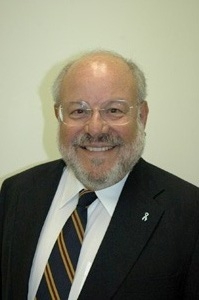But nuclear power remained a major focus of Dr. Chu, a physicist out of the U.S. national nuclear laboratory system. In his letter to Department of Energy employees announcing his departure, Chu listed as among "tangible signs of success" during his tenure the go-ahead for the building of "the first nuclear power plants in the last three decades" in the U.S.
His position on energy as energy secretary was similar to the stand he took in his previous role as director of Lawrence Berkeley National Laboratory in California. There he also promoted energy efficiency and renewables, but nuclear power was a main thrust of his energy stance.
" Nuclear has to be a necessary part of the portfolio," declared Chu, as laboratory director, at an "economic summit" in California in 2008 sponsored by Stanford University. http://news.cnet.com/8301-10787_3-9888608-60.html He said in his speech: "The fear of radiation shouldn't even enter into this. Coal is very, very bad."
As energy secretary, speaking at the Vogtle nuclear plant site in Georgia last year, where two of the new plants he cited in his letter are supposed to be built, he said: "The resurgence of America's nuclear industry starts here in Georgia, where you just got approval for the first time in three decades to build new reactors. The Obama administration is committed to doing our part to help jumpstart America's nuclear industry. The Energy Department is supporting this project with more than $8 billion in conditional loan guarantees. And we have partnered with industry to support the certification and licensing of the new Westinghouse AP1000 reactor design." click here
Describing nuclear power as a "clean" energy technology, Chu said, "What you are doing here at Vogtle will help us compete in the global clean energy race and provide domestic, clean power to U.S. homes."
And, the year before, in a presentation before the International Atomic Energy Agency, Chu asserted: "Nuclear power will continue to be an important part of our energy mix, both in the United States and around the world." The Fukushima Daiichi nuclear plant disaster had occurred just six months before, and he also said: "The tragic events at Fukushima make clear that nuclear energy"also brings significant challenges to our collective safety and security." click here
Some news pieces in recent days about Chu's resignation have mentioned the proposed Yucca Mountain nuclear waste project and how--as the Las Vegas Review Journal accurately put it--Chu "carried out the Obama administration's plan to shut down" the project.
For Chu as a nuclear laboratory director was a supporter of the plan
to deposit massive amounts of nuclear waste at the site, as noted by CNN in a 2011 piece. http://money.cnn.com/2011/07/06/news/economy/nuclear_waste/index.htm As energy secretary, Chu switched to the stance of President Obama (and Senate Majority Leader Harry Reid of Nevada). The mountain 100 miles from Las Vegas is riddled with earthquake faults.
In his letter to DOE employees, Chu challenged--as he pointed out Obama did in his recent inaugural address--those who deny climate change. "Some may still deny the overwhelming judgment of science"The overwhelming scientific consensus is that human activity has had a significant and likely dominant role in climate change," Chu wrote.
He went on to promote "clean" energy as an antidote.
The key problem here, however, is that by including nuclear power in the "clean" energy category, Chu refuses to accept that the nuclear "fuel cycle" involved in nuclear power--mining, milling, fuel fabrication, enrichment and so on--is a significant contributor to greenhouse gasses and climate change.
And he refuses to accept that true "clean" energy-- safe renewable energy technologies such as solar and wind--can provide all the energy we need and not contribute to climate change at all. "A Plan to Power 100 Percent of the Planet with Renewables" was a 2009 cover story in Scientific American, http://www.scientificamerican.com/article.cfm?id=a-path-to-sustainable-energy-by-2030 , about one of several major studies done in recent years coming to the same conclusion.
But Chu titled his 2010 essay, on his personal Facebook page--"Why We Need More Nuclear Power." He insisted that "we need nuclear power as part of a comprehensive solution." He asked for comments. https://www.facebook.com/notes/steven-chu/why-we-need-more-nuclear-power/336162546856 One reader, Matthew Cloner, commented on March 12, 2011: "I'm afraid that I cannot agree with you in your position, Dr. Chu. As the recent disaster in Japan unfolds before our eyes, it is very obvious that nuclear power is both extremely dangerous and environmentally unsound as an energy source."
But it's hard for Chu and many other scientists out of the national nuclear laboratory system to acknowledge the deadliness of the technology which is the basis for most of their work.
(Note: You can view every article as one long page if you sign up as an Advocate Member, or higher).





